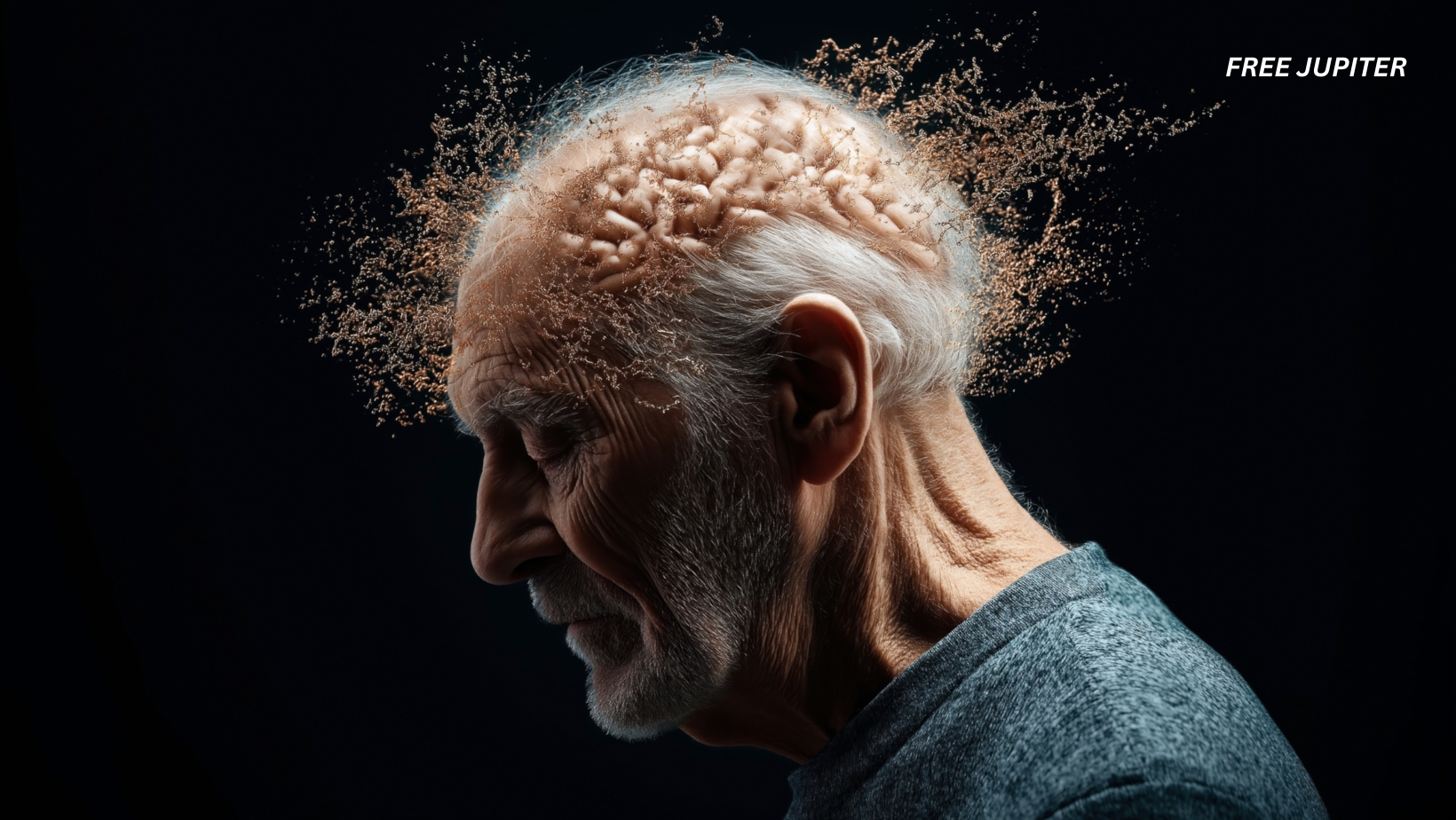Most people grow up believing that youth is the ultimate advantage — that mental sharpness, quick thinking, and creativity belong to the young. As the years go by, it’s common to fear that age inevitably dulls the mind. Yet, science is now rewriting this narrative in a surprisingly optimistic way.
According to new research published in the journal Intelligence, the human brain actually reaches its overall psychological peak between the ages of 55 and 60. That’s right — for many, mental performance doesn’t hit its high point in youth, but in midlife. This discovery suggests that instead of dreading aging, there’s a lot to look forward to — especially when it comes to complex thinking, emotional intelligence, and leadership.
Rethinking the “Prime of Life”
For decades, researchers have studied how the body and mind change over time. Physically, most people hit their athletic stride in their late twenties to early thirties. Reaction times, strength, and endurance peak, which is why elite athletes, dancers, and even soldiers often perform their best during that window.
Mentally, early adulthood also brings certain advantages. The brain processes new information rapidly, memory is at its sharpest, and problem-solving can happen in a flash. Scientists call these traits fluid intelligence — the ability to reason quickly, recognize patterns, and adapt to new situations.
But fluid intelligence doesn’t tell the whole story of mental ability. The mind continues to grow and evolve long after those youthful highs fade. While some cognitive functions slow down, others — like emotional regulation, wisdom, and long-term decision-making — keep improving well into older adulthood.
Read more: The Way You Drive Says More About You Than You Think, According to a Therapist
The Hidden Growth of the Mature Mind
The new study took a broad approach to understanding how the human mind develops across the lifespan. Instead of looking at just memory or reaction time, the researchers analyzed 16 different psychological dimensions.
These included:
- Core cognitive skills like reasoning, processing speed, and memory span.
- Knowledge-based intelligence, which grows as people accumulate experiences and learn from them.
- Emotional intelligence, including empathy, self-awareness, and social understanding.
- The Big Five personality traits — openness, conscientiousness, extraversion, agreeableness, and emotional stability.
- And lesser-studied factors like moral reasoning and the ability to resist cognitive biases (mental shortcuts that lead to poor judgment).
To compare these traits fairly, the researchers standardized data from numerous large-scale studies, aligning them on a shared scale that allowed them to track how each quality changes with age. The result was a detailed “map” of psychological growth across adulthood.
When Does the Brain Really Peak?
The data painted a far more nuanced picture of aging than most people expect. While mental quickness may begin to dip in the late twenties, other traits actually keep rising for decades.
- Conscientiousness, which reflects dependability and responsibility, peaks around age 65.
- Emotional stability, the ability to stay calm and grounded under pressure, reaches its high point near age 75.
- Moral reasoning, or the capacity to see issues from multiple perspectives and make ethically sound decisions, often strengthens well into the 70s and 80s.
- Even the ability to avoid cognitive biases — those small mental traps that make people jump to conclusions — tends to improve with age.
When the researchers combined all 16 dimensions into a single index of overall mental functioning, they found that the sweet spot for the brain’s peak performance lies between ages 55 and 60. After 65, performance begins to taper off slowly, with more noticeable declines typically appearing around 75.
But this doesn’t mean the mind “fails” after that. Instead, it reflects the natural slowing of some processes while others — like judgment and wisdom — remain remarkably strong.
Read more: Japan Just Hit 100,000 Citizens Over 100-Years-Old — Their Longevity Secret Isn’t What You’d Think
Why Maturity Brings Mental Strength
This balance of traits explains why many individuals in their 50s and 60s thrive in positions that demand complex decision-making and leadership. A younger brain may react faster, but an older one often reacts smarter.
Middle-aged adults have decades of experience navigating challenges, managing people, and recognizing subtle patterns in behavior. Their emotional regulation tends to be stronger, and they’re better at balancing empathy with logic. This makes them especially effective in high-pressure environments — whether it’s leading a company, mentoring a team, or managing crises.
It’s no coincidence that some of the world’s most influential leaders, innovators, and thinkers achieve their greatest accomplishments during this stage of life. Experience, reflection, and emotional balance combine to create a form of intelligence that no textbook can teach.
The Problem with Age-Based Assumptions
Despite the science, many workplaces still carry outdated beliefs about aging. Employers sometimes assume that older workers are less adaptable, less tech-savvy, or less energetic. This perception can make it harder for midlife and older adults to find new opportunities after job loss or career changes.
Certain professions even have mandatory retirement ages. For instance:
- The International Civil Aviation Organization sets the global retirement age for airline pilots at 65.
- Many nations require air traffic controllers to retire by 56–60, citing safety concerns linked to focus and reaction time.
While these rules serve practical purposes, they also reinforce the stereotype that mental decline is inevitable after a certain age. Yet research consistently shows that individuals vary widely — some maintain high levels of reasoning and memory well into their later years.
That means age alone is a poor predictor of ability. Evaluations should instead focus on a person’s actual skills, performance, and mental traits, rather than their birth date.
The Science of Late-Life Growth
What explains this mental flourishing in midlife and beyond? Several factors are at play:
- Experience and Knowledge Accumulation – Over decades, people collect not just facts but also patterns of understanding about how the world works. This “crystallized intelligence” continues to grow long after fluid intelligence slows down.
- Emotional Regulation – Older adults often develop stronger control over their emotions, allowing them to respond with patience and empathy rather than impulsivity.
- Neural Efficiency – The brain becomes better at selecting what truly matters and filtering out distractions, creating a kind of “mental streamlining.”
- Social Wisdom – With time comes insight into relationships, negotiation, and communication — the very qualities that make leaders effective.
In short, aging doesn’t simply take away; it refines and strengthens the qualities that contribute to deeper intelligence.
When Great Minds Peaked Later in Life
History provides plenty of examples that support the science. Charles Darwin was 50 when he published On the Origin of Species, reshaping biology forever. Beethoven, at 53 and completely deaf, composed his monumental Ninth Symphony. More recently, Lisa Su, now in her mid-fifties, led computer giant AMD through one of the most impressive comebacks in tech history.
These achievements show that creativity, innovation, and insight often blossom when people have enough life experience to connect ideas across fields and see patterns that younger minds might miss.
Read more: Imagine If We Could Turn Plastic Into Fuel — This Young Inventor Just Did
Redefining What “Peak” Really Means
This research ultimately challenges the cultural obsession with youth. Society tends to equate aging with decline, but the evidence tells a richer story: the human brain continues to evolve throughout life, shifting from fast and reactive to deep and reflective.
The years between 55 and 60 may represent not a countdown, but a culmination — the point where intellect, emotion, and experience blend into a powerful form of intelligence that’s uniquely human.
So, instead of treating midlife as the start of a slow fade, perhaps it’s time to celebrate it as a milestone — a stage where we finally think, feel, and understand the world at our best.
In the end, aging isn’t the enemy of intelligence. It’s the sculptor that refines it. And for many, the mind’s true masterpiece doesn’t appear until well after the halfway point of life.
Featured image: Freepik.
Friendly Note: FreeJupiter.com shares general information for curious minds. Please fact-check all claims and double-check health info with a qualified professional. 🌱










